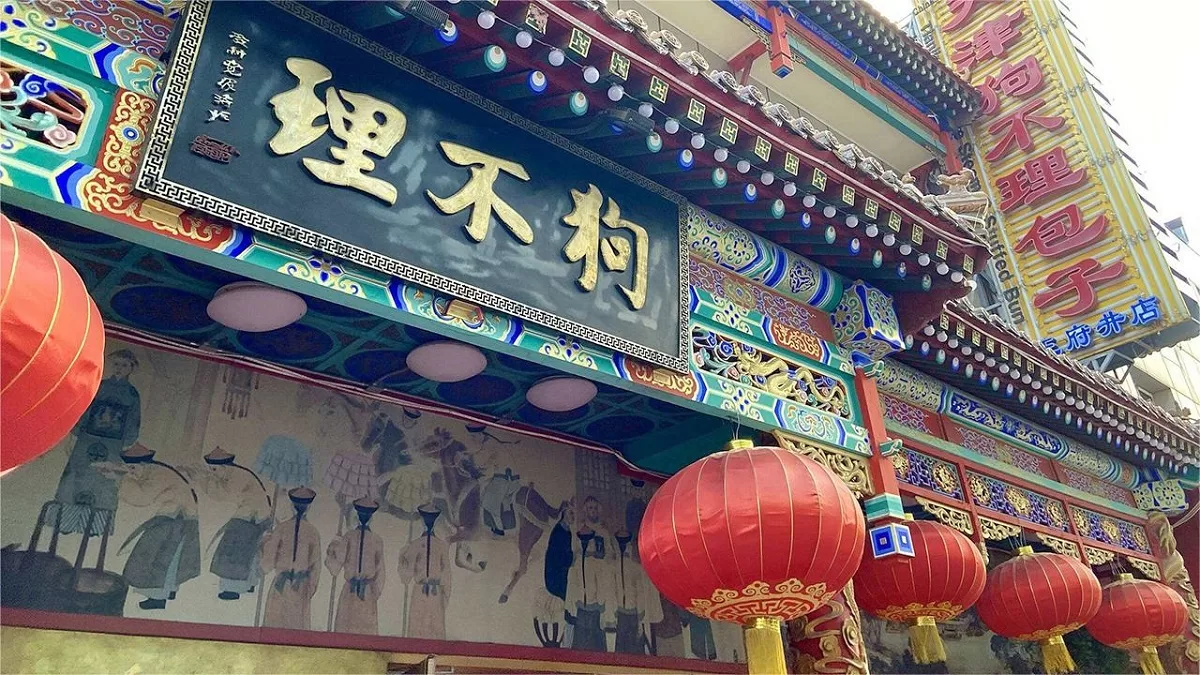In the vibrant culinary landscape of China, one dish that stands out for its unique history, exceptional taste, and cultural significance is “Goubuli Baozi.” Hailing from the city of Tianjin, these delectable steamed buns have become a symbol of the region’s culinary heritage and a must-try for anyone visiting this bustling metropolis.
Origins and Legend:
Goubuli Baozi’s roots trace back to the mid-19th century when a young man named Gouzi from a small village in Hebei province arrived in Tianjin with nothing but his exceptional skills in making baozi. Eager to make a name for himself, Gouzi began selling his baozi on the streets of Tianjin. The locals were immediately enamored by the delicate, juicy, and exquisitely folded buns. Impressed by the superb quality, they affectionately called them “Gou-er baozi,” which eventually transformed into “Goubuli.”
The Art of Goubuli:
Goubuli Baozi’s allure lies not only in its rich history but also in the craftsmanship that goes into making each bun. The process begins with kneading a simple dough of flour, water, yeast, and a touch of sugar. After a period of fermentation, the dough is divided into small portions, each carefully filled with a mixture of seasoned pork, finely chopped vegetables, and a secret blend of spices. The buns are then expertly pleated into intricate folds, resembling a blooming chrysanthemum, and placed in bamboo steamers to be cooked to perfection.
Flavors and Varieties:
While the traditional Goubuli Baozi features succulent pork fillings, the modern variations cater to diverse tastes and preferences. Besides the classic pork version, one can savor a myriad of fillings such as minced beef, chicken, shrimp, or vegetarian options, showcasing the versatility of this iconic dish.
Culinary Legacy:
Over the decades, Goubuli Baozi has evolved from a humble street food to a renowned delicacy. The family-owned Goubuli restaurant, which originated from Gouzi’s modest street stall, now operates numerous branches across China and even globally. However, the original recipe remains a closely guarded secret, passed down through generations, ensuring that the authentic taste of Tianjin is preserved.
Cultural Significance:
Goubuli Baozi’s cultural significance extends beyond its culinary appeal. The art of making the buns has been recognized as a Tianjin Intangible Cultural Heritage, emphasizing its contribution to the local heritage. Moreover, the buns’ name, “Goubuli,” carries a warm connotation, translating to “dog ignores” or “dog doesn’t pay attention.” The name symbolizes the Gouzi’s dedication to his craft, as he was so focused on making the best baozi that he even neglected his own dog.
Baozi Empire:
Goubuli’s enduring popularity has led to the establishment of an empire of culinary delights. The Goubuli Steamed Stuffed Bun Group Corporation, founded in 1995, has expanded its offerings to include a wide range of traditional Chinese dishes, turning it into a comprehensive dining experience for locals and tourists alike.
The Goubuli Experience:
Visiting a Goubuli restaurant is more than just indulging in delicious baozi; it is an immersive cultural experience. The restaurants are designed to reflect traditional Chinese aesthetics, transporting diners to the bygone era when Goubuli first won the hearts of Tianjin’s residents.
Beyond Tianjin:
Goubuli Baozi’s fame has transcended Tianjin’s boundaries, and today, visitors to the city seek to take home boxes of these mouthwatering buns as edible souvenirs. The flavors of Tianjin travel with these visitors, introducing the culinary treasure to every corner of China and beyond.
Conclusion:
In conclusion, Goubuli Baozi is much more than a steamed bun; it is a symbol of Tianjin’s history, culture, and culinary excellence. As one indulges in the juicy goodness of these buns, they become part of a legacy that has shaped the city’s identity and captured the hearts of people across the world. Whether you are a food enthusiast, a history buff, or an adventurous traveler, experiencing Goubuli Baozi in Tianjin is an essential part of any journey to this enchanting city.


